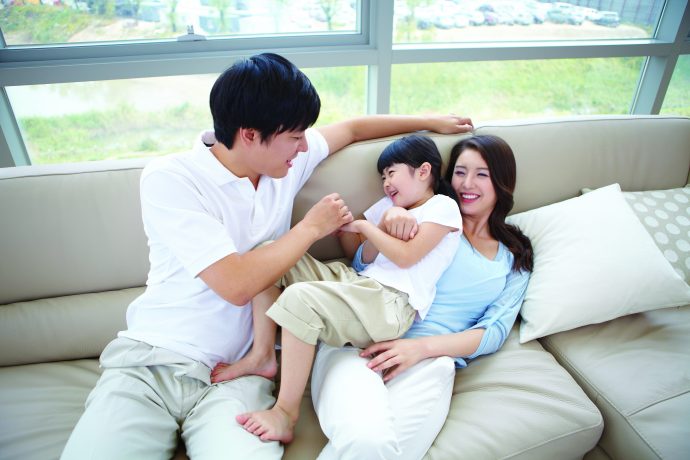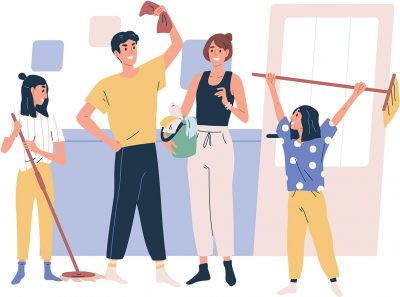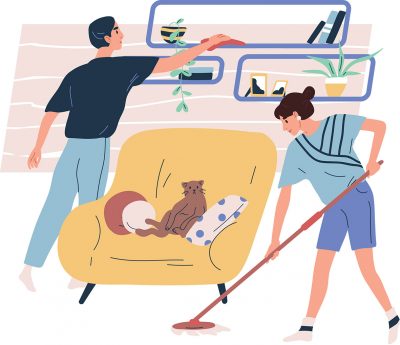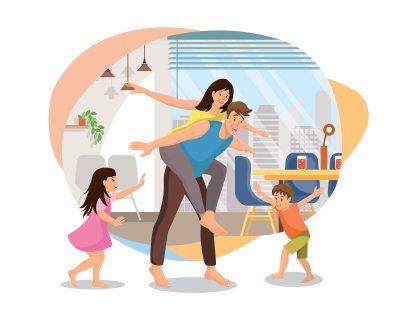There’s a gift in every experience, even difficult ones.
The tragic COVID-19 pandemic has levelled a huge blow to humanity and halted various aspects of life as we know it. By September, the global death toll due to COVID-19 had reached over 850,000. In comparison, according to the World Health Organization (WHO), a total of only 8,098 people worldwide became sick during the SARS outbreak in 2003. It is shocking, that almost two decades after SARS, and especially with such huge strides made in technology and healthcare, that COVID-19 has been able to wreak such havoc globally, crippling even first world countries.
In Malaysia, the Movement Control Order began on 18 March, when schools, offices and businesses were shut down overnight. This was a public health strategy, which many other countries also adopted, in an effort to “flatten the curve” or slow down the spread of COVID-19 which was aggressively claiming victims. Only essential sectors were allowed to operate during this time, and the public was ordered to stay home.
Almost two months later, on May 4, some of these rules were relaxed when the Conditional Movement Control Order (CMCO) came into effect. Nonetheless, the fallout was, and remains, huge: businesses have gone bankrupt, employees have been retrenched, household incomes have depleted, extended families remain separated from their loved ones and children have had to resort to e-learning.
Yet, even with so much bad news, even the experts agree that there has been a silver lining behind the gloomy cloud of the coronavirus – people have begun reacquainting themselves with the simple pleasures of life and celebrating little things that are so often overlooked – like the joys of cooking, baking and eating together at home, gardening and becoming more self-sufficient, as well as families having fun singing, playing games and exercising! Even the simple act of washing one’s hands and keeping good hygiene is being reinforced over and over, which in the long run, will be good news for everyone. And less people in their cars on the streets has also resulted in cleaner environments.
Datuk Dr Zulkifli Ismail, Chairman of Positive Parenting Programme, notes that less vehicles on the roads has translated to less air pollution and with fewer factories discharging their waste, our rivers are now cleaner.
“COVID-19 has strangely been a good way to reset our lives! And now we have to live with the new norms,” Dr Zulkifli says, adding that the pandemic provided the opportunity for children to learn about infections and viruses. “Because of the MCO children have had to spend quality and quantity time with their parents, and this sort of role modelling from parents can have a lasting effect.”
Stuck at home for over two months, parents had to come up with innovative ways to entertain and spend time with their children, making the best of the MCO by doing family activities together and even praying together more often. Dr Zulkifli said: “The knowledge that an unknown, miniscule enemy can infect and kill at any time, brought to the forefront the need to rally around in prayer, and this religiosity was the glue that bound many families together. These have all been positive changes that we’ve witnessed,” he says. “When families were forced to spend time with each other, forced to interact with each other, they started talking to each other again.”
Communities also began banding together to fight the virus – you see tailors and homemakers sewing protective gear, DIY people and engineers building healthcare equipment, social welfare workers and activists quickly got into gear cooking and feeding the marginalised and needy, and everyone, everywhere began hailing and showing gratitude for the frontliners and the heroes of healthcare, who put their own safety at risk to care for total strangers.
Fresh eyes
Consultant Developmental Paediatrician Dr Rajini Sarvananthan agrees and observes that for many families, life at home has been enriched. “For me personally, the MCO meant that we were able to have great family time together and even marked my first Mother’s Day in five years with all three of my children at home! With no helper coming in, my girls have also rallied around to help keep the house clean, and to cook meals.”
Dr Rajini says that the MCO has forced many parents to rethink their roles as fathers and mothers.
“Children have been deprived of time with parents because of work commitments, traffic jams, enrichment classes, tutoring and sporting activities. Parents have had to outsource a lot of their parenting, nurturing and caring duties to others,” she explains. “But this enforced time at home allowed us all to reconnect with our children and form stronger bonds.”
She explains that parents have been able to obtain new insights as to what their children’s abilities and weaknesses are, and extra time in close contact allows them to nurture adaptive skills while doing chores together.
“Just by doing activities together at home, siblings are learning how to share, wait, take turns, negotiate, cooperate and share ideas. Even arguing can be healthy because, in reality, it is just a different form of negotiation!”
Dr Rajini is happy to share a couple of examples where healthy development has taken place during this time. “Prior to the MCO, three toddlers between 18-24 months with poor social communication skills were seen in my clinic. All three were looked after by babysitters who had TVs on all the time, and one child had two iPads – one at home and one at her babysitter’s. During the MCO, two of them reduced screen time and had more time to play, and we saw improvements in just six weeks! So, we are continuing to monitor their progress,” Dr Rajini shared. “Another mother emailed me to say she had managed to toilet train her five-year-old daughter who has special needs – this came after 18 months of trying!”
Stirring up the love
Another positive change that has been taking place in the last couple months is that more people have begun cooking and eating at home, as well as gardening.
Nutritionist and President of Nutrition Society of Malaysia Dr Tee E Siong is so pleased to see this.
“Especially at a time like this, it is important to continue consuming adequate amounts of fruits and veggies, because they contain phytonutrients, vitamins and minerals that can act as antioxidants to boost up your immune system. You want to be able to fight the virus,” Dr Tee says, emphasising the importance of having a good diet. “It’s the best time to change food habits and adopt healthier patterns. I do hope families will continue to practise cooking and eating at home because healthy eating should not just be limited to fighting COVID-19.”
If you’ve been following social media, you would have seen how mums and dads and kids have been sharing recipes and photos of homemade food; it seems like overnight many have turned masterchefs, even baking like sourdough bread from scratch! Dr Tee is encouraged by this and hopes that families will adopt healthier cooking and eating practices for the long run. When you cook at home, you are in control of all the ingredients that go into your dishes.
“And if you keep practising, you will soon develop culinary skills that your family members will be proud of! When things return to normal (and they will!), make cooking healthy meals at home a way of life. This is an investment that will enable you and your family members to fight other chronic diseases caused by unhealthy eating, such as heart disease, diabetes and cancers.”
Family bonding
Spending time at home has also allowed spouses to refresh their perspective of what the other half has to deal with at home or at work.
In an interview with Positive Parenting, young father Abdul Hadi Kassim, from Cyberjaya, shared that working alongside his family has been such a memorable experience. The 31-year-old project executive said: “It has been challenging, no doubt. But I have an understanding spouse, and everything has worked out quite smoothly. As a husband, I also now have a new appreciation for how hard and challenging it must be for my wife who is a full-time housewife, to manage the whole family’s needs every day. All housewives out there deserve a big applause for what they do daily. It is truly noble work.”
Behavioural psychologist Mr Alexius Cheang says that seeing one’s spouse take care of the household, along with the children would definitely have been an eye-opener for most working adults who often don’t realise the level of work needed to run a household.
It’s also no secret now that many parents have had to juggle conducting boardroom meetings with laundry and cooking duties, and then move on to helping kids with their schoolwork, and even doing extra tasks like giving haircuts during lockdown. Lots of funny memes and Internet stories have highlighted this situation, which could have been traumatic if spouses were not supportive. Cheang emphasised how wonderful it has been to see parents assisting one another in the shared responsibilities and having conversations about expectations from each other. Everyone in the household has had to adjust to the new normal, and the best partnerships are created when there is open communication as well as respect for what each other brings to the relationship.
By having both parents at home also, families have started enjoying the numerous opportunities to interact together – singing, dancing, exercising and making Tik Tok videos together. Cheang wholeheartedly believes that the family that plays together stays together.
“This statement is supported by research which states that the more frequently family members do fun activities together, the more family satisfaction and closeness they have. In addition, any activity that facilitates family relationships such as playing board games can increase attention, listening and concentration skills with one another,” he said. “The MCO was a perfect opportunity for bonding to occur between parents and children. Parents were able to learn what activities keep their children focused, as well as what motivates them. Children, in turn, have been able to see what their parents do in their jobs. Outside of work and education-based activities, there has also been a tremendous opportunity to interact and really get to know each other better.”
Make gratitude a way of life
So, while the going has been rough, remember that there have been some lovely things that have kept us going. Indeed, a crisis can often bring out the best in people, and the 2020 pandemic has reminded us why it is important to celebrate every day and take care of ourselves, our communities, and our environment.
Let’s be grateful for our families, for the healthcare system in our country, for our teachers who have just kept teaching like energizer batteries throughout this whole ordeal, for the cleaner air and sunshine that we enjoy every day, for good food and friendly neighbours … the list goes on, if only you take time to look for the positives.
Things may never go back to how they used to be before the pandemic, but let’s continue to appreciate what we have, remember the lessons we have learnt along the way, and march on with a renewed sense of what keeps Malaysians healthy and happy.
Practise gratitude
One of the most powerful tools for staying healthy is practising gratitude. Being grateful is not only important for making you feel better psychologically during a crisis, it can also improve your physical wellbeing. Here’s how you can get started:
- Reflect on the good that has happened in your life, no matter how small or insignificant – make a list!
- Enjoy that you had that positive experience, no matter what negatives may exist in your life.
- Do this frequently and continually so you form a habit, and soon you will learn to recognise good things in your life despite the bad things that might be happening.











Comments